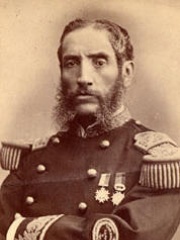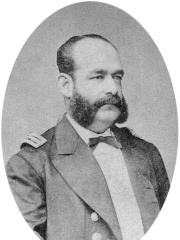

The Most Famous
MILITARY PERSONNELS from Peru
This page contains a list of the greatest Peruvian Military Personnels. The pantheon dataset contains 2,058 Military Personnels, 2 of which were born in Peru. This makes Peru the birth place of the 79th most number of Military Personnels behind Burkina Faso, and Puerto Rico.
Top 2
The following people are considered by Pantheon to be the most legendary Peruvian Military Personnels of all time. This list of famous Peruvian Military Personnels is sorted by HPI (Historical Popularity Index), a metric that aggregates information on a biography's online popularity.

1. Andrés Avelino Cáceres (1836 - 1923)
With an HPI of 59.66, Andrés Avelino Cáceres is the most famous Peruvian Military Personnel. His biography has been translated into 31 different languages on wikipedia.
Andrés Avelino Cáceres Dorregaray (10 November 1836 – 10 October 1923) was a Peruvian politician and general who served as the President of Peru, from 1886 to 1890 as the 27th president, and again from 1894 to 1895 as the 30th. He is considered a Peruvian national hero for leading the resistance against the Chilean occupation during the War of the Pacific (1879–1883), in which he fought as a general in the Peruvian Army.

2. Miguel Grau Seminario (1834 - 1879)
With an HPI of 57.29, Miguel Grau Seminario is the 2nd most famous Peruvian Military Personnel. His biography has been translated into 18 different languages.
Miguel María Grau Seminario (27 July 1834 – 8 October 1879) was a Peruvian Navy officer and politician best known for his actions during the War of the Pacific. He was nicknamed "Gentleman of the Seas" for his kind and chivalrous treatment of defeated enemies and is held in high esteem by both Peruvians and Chileans. Grau is an iconic figure for the Peruvian navy, and one of the most famous naval officers from the Americas. He commanded the Peruvian ironclad Huascar during the War of the Pacific. Known for his skillful naval tactics, Grau repeatedly evaded Chilean pursuers and harassed the Chilean coast.
People
Pantheon has 2 people classified as Peruvian military personnels born between 1834 and 1836. Of these 2, none of them are still alive today. The most famous deceased Peruvian military personnels include Andrés Avelino Cáceres, and Miguel Grau Seminario.

